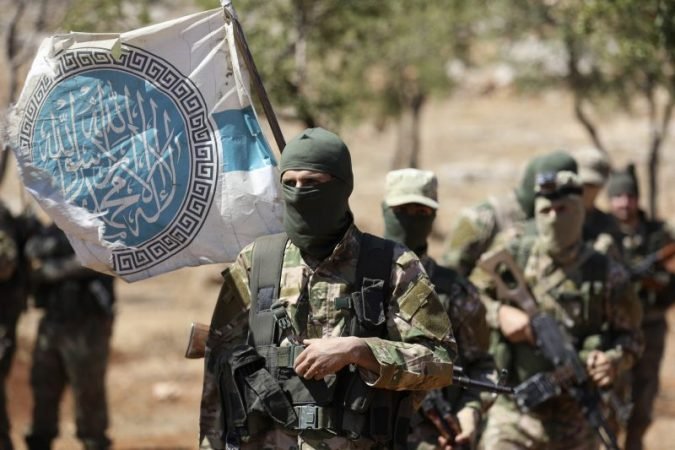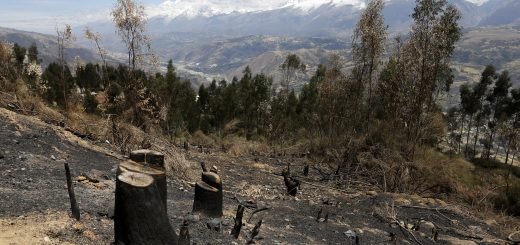The Evolutionary Strategies of Hayat Tahrir al-Sham in Syria

In June, Hayat Tahrir al-Sham (HTS) coordinated with Turkey to execute a series of operations that would alter their reputation as “an ally” of the war on terror. On June 16th, HTS arrested Abu Salah al-Uzbeki, a former leader who left HTS to join a different jihadi group. A week later, they also arrested Abu Malik al-Tali, a former council member who established a new branch without officially leaving HTS. They targeted these two individuals because of their common affiliation with an operations room called So Be Steadfast (SBS), which is their biggest rival. They have pursued raids on SBS with the intent to coerce them to close their factions and deter the establishment of new ones. Lately, their strategy has been to capture and arrest other jihadi group leaders in efforts to diminish terrorism in Syria. Turkey supports HTS’ endeavours to eradicate terrorism because it grants them an advantage against their adversary- Russia. However, Turkey’s role behind HTS’ strategy has led to the group’s increased power in Syria and the freedom to control the border with given weapons.
Ideology
Hayat Tahrir al-Sham is led by military commander Abu Muhammad al-Jolani. It is directed by a consultative council, ultimately headed by Jolani. It is speculated to be hierarchical and regionalized, with an estimated number of 12,000 to 20,000 fighters. The group contends to stand alone without any coalition of factions. HTS aims to seize its economic power and governance in the north-west of Syria, particularly Idlib. Their objectives are to unify the ranks of the mujahideen by destroying the regime and its affiliates. HTS encourages others to join their group and become allies to assist with enclosing the revolution’s capabilities, preserve its path, and recognizing its goals. In other words, this group is a step towards saving the battlefield from military and political tensions between the different factions. Thus, their strategy is promoting legitimacy and social control, justifying their actions by taking steps towards unification and civil administration.

How they finance
Hayat Tahrir al-Sham finances their terrorist activities through common tactics known of jihadi terrorist groups, such as taxation, fines, hostages, charities/donations, oil sales, looting, and money smuggling. They impose taxation, tariffs, and fines on the local populace living within their territory. Resources that get taxed include electricity, water, food, and businesses. They also lease homes in Idlib to raise funds for weapons and ammunition. HTS coerces farmers to deflate the prices of their crops so that they can sell them at a higher rate and make a profit. They receive donations from business people who launder their money through small money transfers and dispatches. Wealthy states and citizens from Kuwait, Qatar and Saudi Arabia are known to assist with funding this group. These governments enable their citizens to act with impunity, which becomes a catalyst for terrorism in countries like Syria (where HTS exists). HTS began receiving more support from Gulf donors once they disaffiliated themselves from al-Qaeda. Their change in name and identity showed the supporting countries that they were not working for nor assisting al-Qaeda operations. HTS did this because they realized they would make more money if they detached themselves from al-Qaeda, which resulted to be true. They began with a budget of $350 million in November 2016 and ended with a budget of $385 million. Their strategy of funds coming from donations, taxes, and oil sales all contributed to this growth in income, even more so after they separated from al-Qaeda.
Recruitment Affairs
In a more current tempo, Hayat Tahrir al-Sham (HTS) has exploited the coronavirus to promulgate terrorism. Leaders tell their followers not to allow the virus to distract them from the big fight. A temporary pandemic should not dismiss the point that the Shiites have corrupted the Islamic religion. In fact, they even expressed in newspapers that the pandemic was sent by God to kill disbelievers of Islam. Since the Jihadi movement altered verses of the Quran to claim that God wanted true Muslims to detect the unbelievers and kill them, they were able to associate that phenomenon with the coronavirus. With so many unknowns on the virus, especially in third world countries, it is easy to believe answers that are given. Further, explanations that entail religious context are always easier to believe because there is no proving otherwise. Therefore, HTS is recruiting people to join the fight by claiming that the virus was sent down to assist.
Another recent form of recruitment that HTS has launched is the establishment of a new group called Popular Resistance Brigades. It is meant to be a popular movement to support the mujahideen and help them on all fronts. The brigades are located in various parts of the liberated area to enable people from all areas to learn about it and join. They created this group to force civilians to join them in the battle against the Syrian Army. However, this form of recruitment has not been very successful because civilians do not want to send their sons to the battlefronts. This failure in recruitment has significantly lowered the morale of HTS and has forced them to relocate other militants to the battlefront because they do not have enough support. However, they ask for civilian monetary support to equip the frontline fighters if they do not want to give up their actual sons. This form of recruitment needs more efforts in finding reasons to convince family members to send their children off to the battle against the Syrian Army.

The Rise of Hayat Tahrir al-Sham in Syria
HTS has become the most prominent and powerful jihadi group in Syria, largely due to their close relationship with Turkish powers. Turkey has hitherto cooperated with HTS by giving them the military advantage of observation posts. This tactical support assists with bringing down al Assad and his regime by having the upper hand of Syrian land and finding their enemy before they find HTS. Turkey’s leniency with HTS practices is intentional to divert jihadist wrath on jihadist forces and not on Turkish forces. Enabling the jihadi group to have the power to eradicate opposing forces is Turkey’s strategy to maintain its level of power in Syria. They will continue to treat HTS reasonably if the group abides by the Russian-Turkish ceasefire agreement or does not interfere with Turkish moves on the ground. Instead of eliminating these groups altogether, Turkey has approached them with business-like assertions.
Despite the cease-fire agreement between Russia and Turkey, joint patrols have provoked conflict and violence in Syria. Northwest Syria is overwhelmed with renewed tensions following clashes between jihadi groups. HTS conducts small battles against the Syrian regime, its militants, and other jihadi groups because they all go against its ideology. They mostly operate in Syria, particularly Idlib but also Aleppo, Hama, and Dera’a. The power retrieved by the group, on Turkey’s behalf, has provoked an increase of violent strategies aside from military tactics. In extreme cases, they undergo hard punishment for fornication (i.e. stoning people to death). They also gain money, either by holding people for ransom or attaining the attention of government personnel for political action. Some of their hostages include UN peacekeepers, Western reporters, and Lebanese soldiers. This action should be of concern to international affairs because HTS is not only inflicting violence internally but on foreigners that partner with Syrian forces or simply broadcast the dilemma at stake.

A Way Forward
Turkey must re-evaluate its relationship with HTS and diminish much of its granted power to the group. Although HTS is actively controlling the growth of newer jihadi groups in Syria, it is becoming more powerful every day. The aftermath of exponential growth and power can make it difficult for government forces to later eradicate HTS; the group may result in having the advantage of surviving in Syria long after the cease-fire agreement. Thus, HTS should be included in the cease-fire agreement rather than the negotiation process because it is inflicting acts of violence towards other jihadi groups and affiliated villages. It should not be mistaken that HTS continues to be a jihadi group, not as “an ally” on the war on terror. The group’s strategy does not coincide with Turkey’s, it functions on behalf of their religious and political ideology. Their violence and endeavours to eradicate other jihadi groups are not to end terrorism, but to follow the guidance of their creator, Qutb. Educating the public on the illegitimacy and diversion from actual Islam can help clarify the distinction stemmed from terrorist groups like HTS. Furthermore, referring to HTS as “Qutbists” instead of “Islamists” explicitly disassociates them with Islamic beliefs. The emphasis of distinguishing their beliefs from actual Islam helps people understand that their ideologies are limited to hate and ignorance.



















